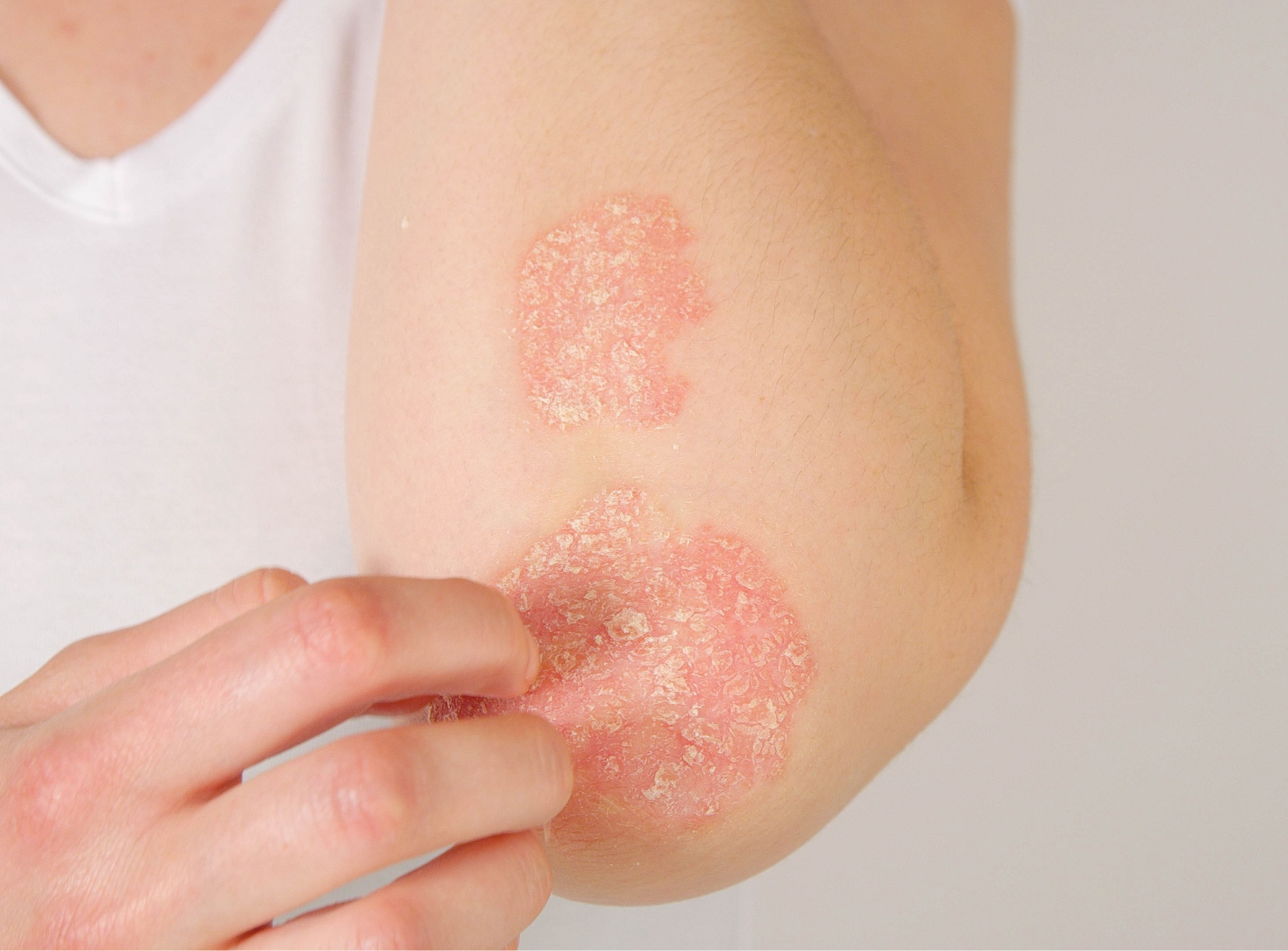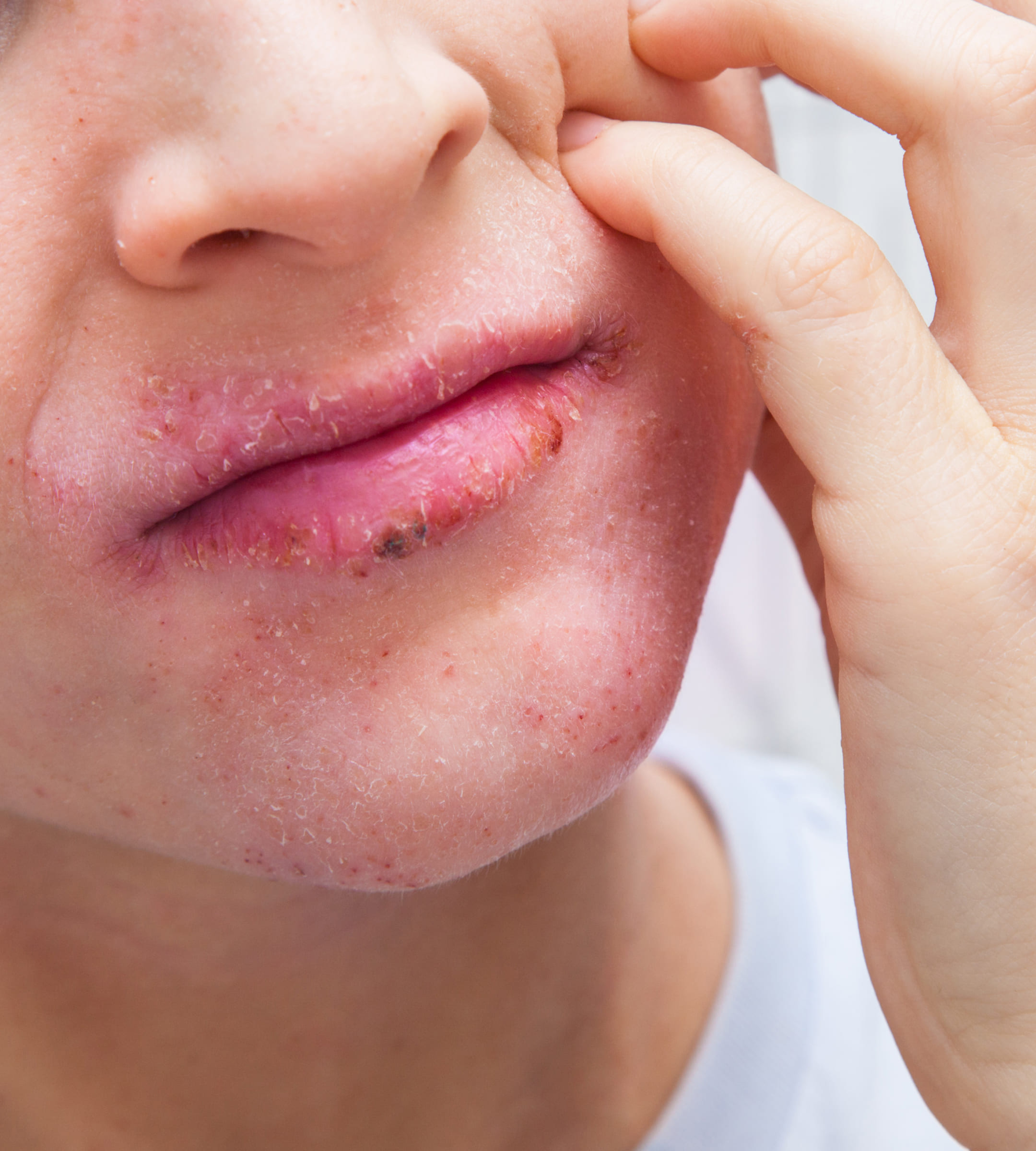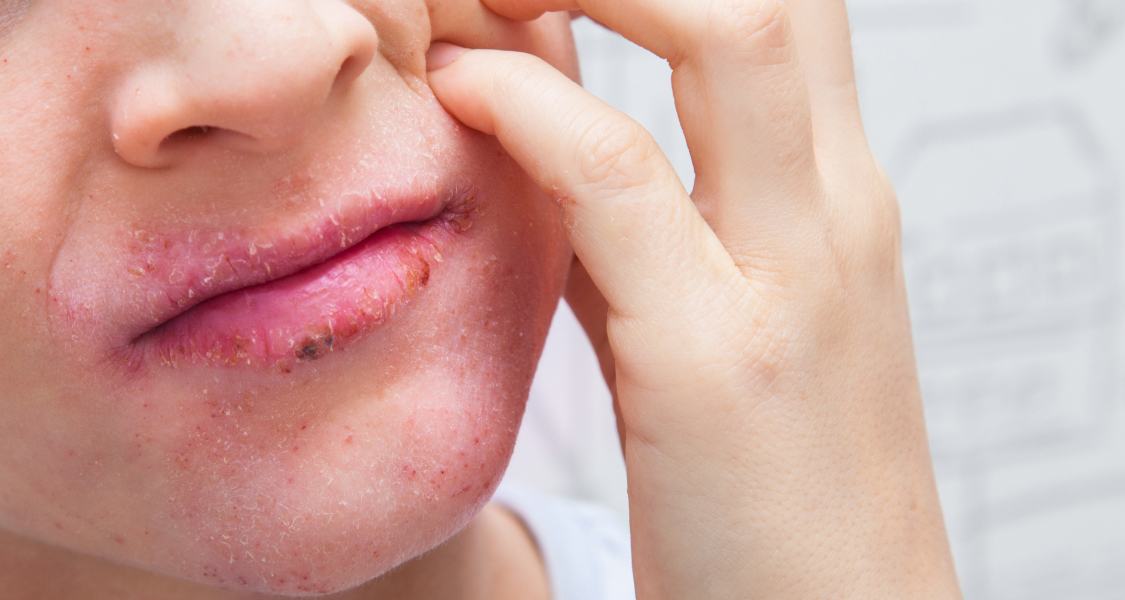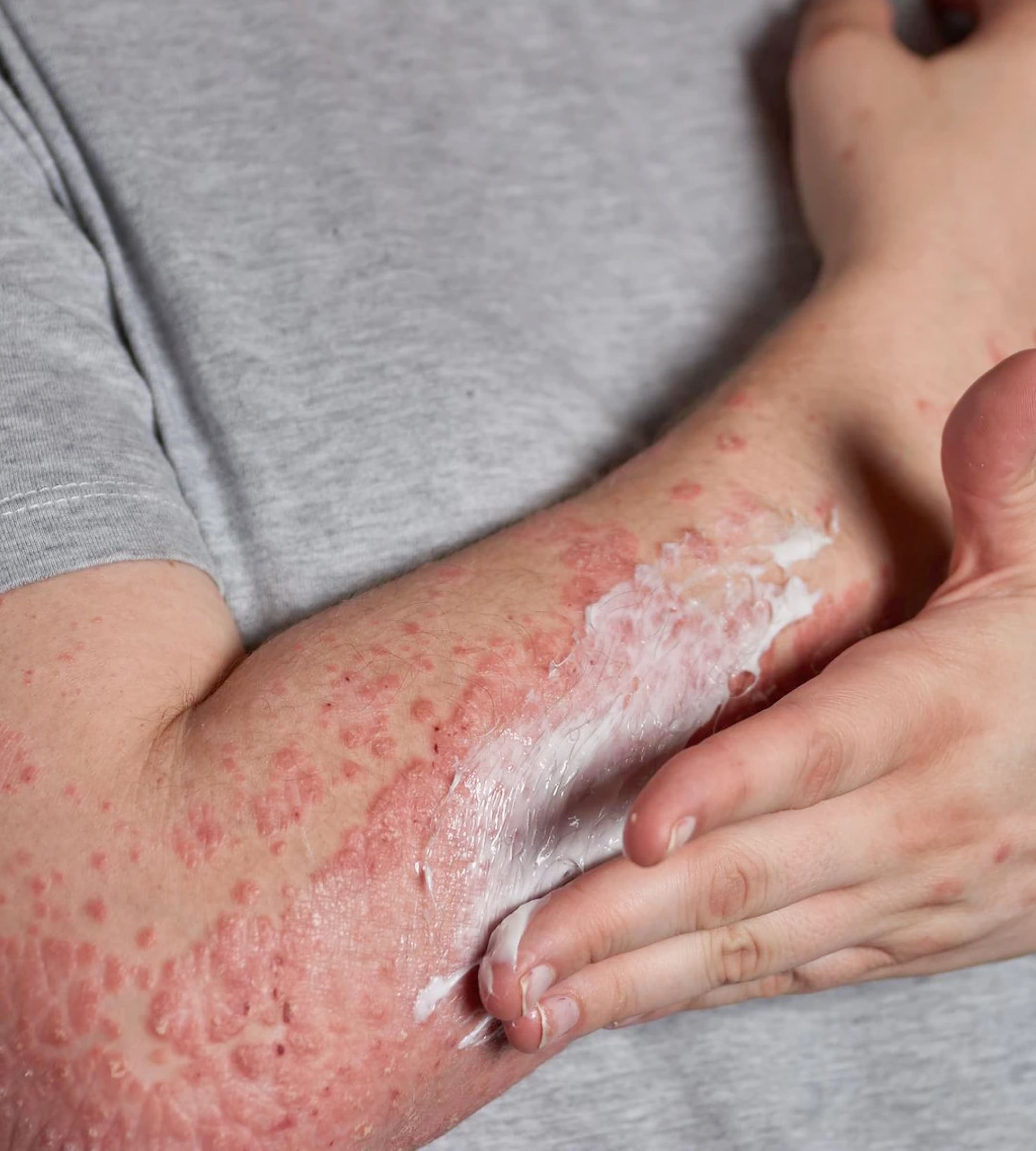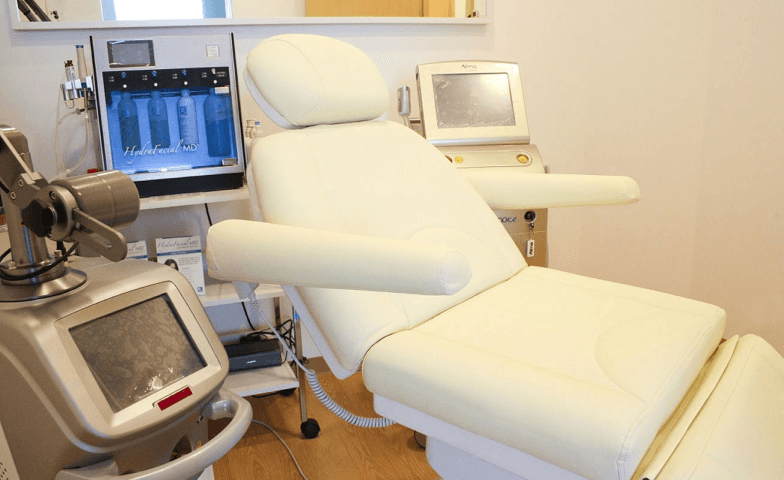Symptoms of Psoriasis
Psoriasis has a characteristic appearance but can be mistaken for other skin conditions like eczema. Common signs and symptoms of psoriasis include:
-
Small bumps
In the early stages of psoriasis, small bumps are visible. These bumps grow and thicken and scales form on top.
-
Crusting on the scalp
Dandruff-like plaques can be present on the scalp.
-
Disorders of the nails
Fingernails and toenails can be affected, manifesting as discoloration and pitting of the nails. The nails may also be brittle and crumble or fall from the nail bed.
-
Joint pain and swelling
Pain and swelling of the joints also known as psoriatic arthritis, affects about 10% to 30% of people with psoriasis.
-
Cyclic rashes
The plaques of psoriasis flare for a few weeks or months and then gradually disappear.
-
Dry, cracked skin
When scratching this rash, the scales on top may tear away from the skin and cause bleeding.
-
Itchy or painful plaques
Characteristic of psoriasis, these are red-colored, often covered with silver scales. These plaques may be itchy or painful. In severe cases, the plaques grow and merge, covering large areas.
